Tolga Dimlioglu
Streamlining Industrial Contract Management with Retrieval-Augmented LLMs
Nov 18, 2025Abstract:Contract management involves reviewing and negotiating provisions, individual clauses that define rights, obligations, and terms of agreement. During this process, revisions to provisions are proposed and iteratively refined, some of which may be problematic or unacceptable. Automating this workflow is challenging due to the scarcity of labeled data and the abundance of unstructured legacy contracts. In this paper, we present a modular framework designed to streamline contract management through a retrieval-augmented generation (RAG) pipeline. Our system integrates synthetic data generation, semantic clause retrieval, acceptability classification, and reward-based alignment to flag problematic revisions and generate improved alternatives. Developed and evaluated in collaboration with an industry partner, our system achieves over 80% accuracy in both identifying and optimizing problematic revisions, demonstrating strong performance under real-world, low-resource conditions and offering a practical means of accelerating contract revision workflows.
Data Scaling Laws for End-to-End Autonomous Driving
Apr 06, 2025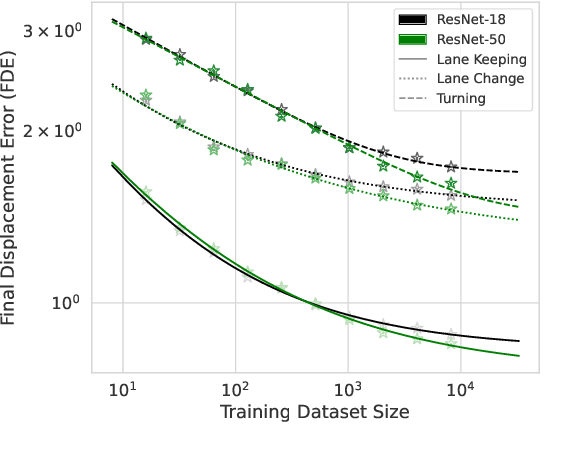
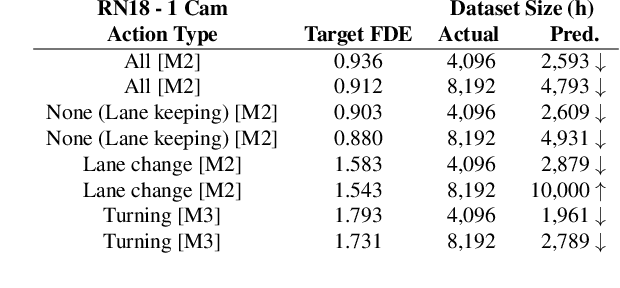
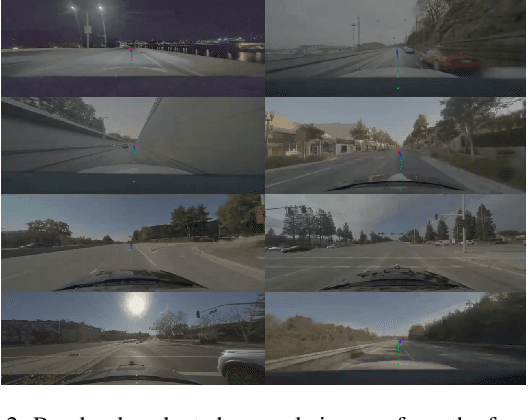

Abstract:Autonomous vehicle (AV) stacks have traditionally relied on decomposed approaches, with separate modules handling perception, prediction, and planning. However, this design introduces information loss during inter-module communication, increases computational overhead, and can lead to compounding errors. To address these challenges, recent works have proposed architectures that integrate all components into an end-to-end differentiable model, enabling holistic system optimization. This shift emphasizes data engineering over software integration, offering the potential to enhance system performance by simply scaling up training resources. In this work, we evaluate the performance of a simple end-to-end driving architecture on internal driving datasets ranging in size from 16 to 8192 hours with both open-loop metrics and closed-loop simulations. Specifically, we investigate how much additional training data is needed to achieve a target performance gain, e.g., a 5% improvement in motion prediction accuracy. By understanding the relationship between model performance and training dataset size, we aim to provide insights for data-driven decision-making in autonomous driving development.
GRAWA: Gradient-based Weighted Averaging for Distributed Training of Deep Learning Models
Mar 07, 2024



Abstract:We study distributed training of deep learning models in time-constrained environments. We propose a new algorithm that periodically pulls workers towards the center variable computed as a weighted average of workers, where the weights are inversely proportional to the gradient norms of the workers such that recovering the flat regions in the optimization landscape is prioritized. We develop two asynchronous variants of the proposed algorithm that we call Model-level and Layer-level Gradient-based Weighted Averaging (resp. MGRAWA and LGRAWA), which differ in terms of the weighting scheme that is either done with respect to the entire model or is applied layer-wise. On the theoretical front, we prove the convergence guarantee for the proposed approach in both convex and non-convex settings. We then experimentally demonstrate that our algorithms outperform the competitor methods by achieving faster convergence and recovering better quality and flatter local optima. We also carry out an ablation study to analyze the scalability of the proposed algorithms in more crowded distributed training environments. Finally, we report that our approach requires less frequent communication and fewer distributed updates compared to the state-of-the-art baselines.
Continual Facial Expression Recognition: A Benchmark
May 10, 2023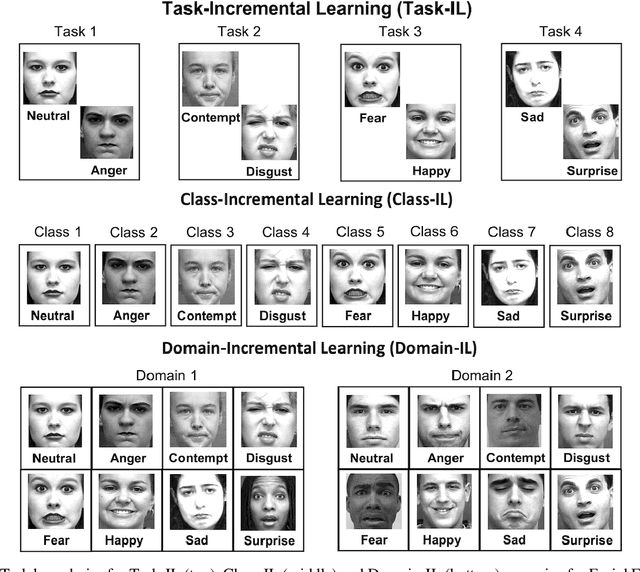

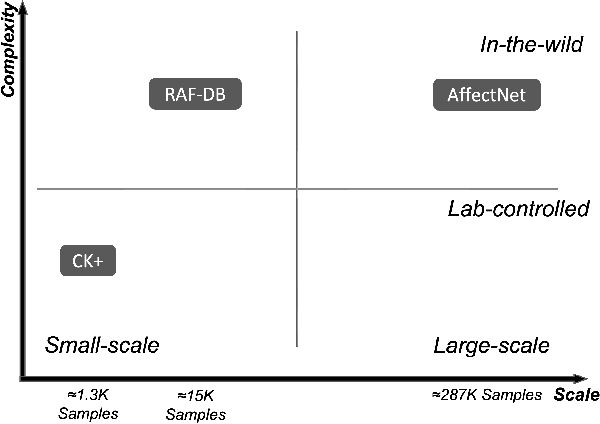
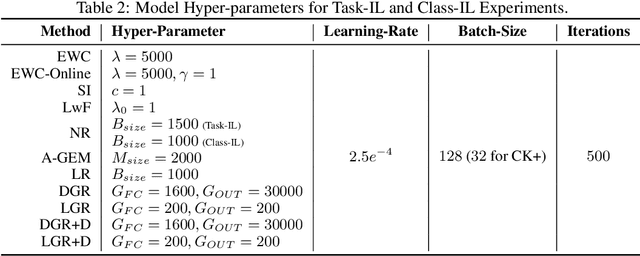
Abstract:Understanding human affective behaviour, especially in the dynamics of real-world settings, requires Facial Expression Recognition (FER) models to continuously adapt to individual differences in user expression, contextual attributions, and the environment. Current (deep) Machine Learning (ML)-based FER approaches pre-trained in isolation on benchmark datasets fail to capture the nuances of real-world interactions where data is available only incrementally, acquired by the agent or robot during interactions. New learning comes at the cost of previous knowledge, resulting in catastrophic forgetting. Lifelong or Continual Learning (CL), on the other hand, enables adaptability in agents by being sensitive to changing data distributions, integrating new information without interfering with previously learnt knowledge. Positing CL as an effective learning paradigm for FER, this work presents the Continual Facial Expression Recognition (ConFER) benchmark that evaluates popular CL techniques on FER tasks. It presents a comparative analysis of several CL-based approaches on popular FER datasets such as CK+, RAF-DB, and AffectNet and present strategies for a successful implementation of ConFER for Affective Computing (AC) research. CL techniques, under different learning settings, are shown to achieve state-of-the-art (SOTA) performance across several datasets, thus motivating a discussion on the benefits of applying CL principles towards human behaviour understanding, particularly from facial expressions, as well the challenges entailed.
 Add to Chrome
Add to Chrome Add to Firefox
Add to Firefox Add to Edge
Add to Edge